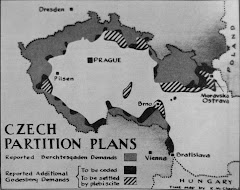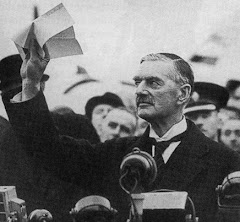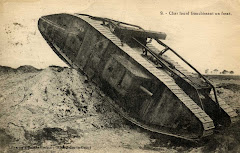Wednesday, September 4, 2013
Posting #1- The Naval Race
Britain vs. Germany
By the end of the twentieth century Britain, as you can see on page 22 in your history text, had the largest empire in the world. It was described as “the empire on which the sun never sets”. Think about why it was given this description.
Britain also had the largest navy. This large navy was necessary for the following reasons:
1.) To protect the empire.
2.) To protect food supplies coming across the oceans. Britain could not grow enough food to feed her crowded population.
3.) To protect her trade routes. Britain’s wealth depended on selling her manufactured goods.
4.) To protect her against invasion from the mainland of Europe.
In contrast Germany’s strength lay in her army. The great nineteenth century German statesman, Otto von Bismark, believed that Germany and Britain should be friends. He said, “a land rat has no quarrel with a water rat.” However, in 1890 the young German emperor (Kaiser Wilhelm II) dismissed his most trusted, experienced and level headed chancellor, Bismark. The Kaiser was said to be an arrogant, unpleasant man who hated the idea of Britain being so much stronger on the oceans than Germany. He therefore ordered a massive increase in the German navy.
The naval race had now begun as Britain and Germany entered a great battle to build more and better warships. In 1906 Britain launched the first of a new kind of super-battleship, called the H.M.S Dreadnought. All ships of this kind were became known as ‘Dreadnoughts’. Many people in Britain became worried about the German naval threat. They were concerned that Germany would build more Dreadnoughts than Britain.
Please read the following excerpt from a British Newspaper and decide which of the statements below, you can agree with. Be sure to give solid reasons for your decision.
“After a long interval devoted to more controversial but less important subjects, the House of Commons today resumes the discussion of the Navy Estimates, and it is believed that Mr. McKenna will announce the decision to lay down four additional Dreadnoughts. This decision will be welcomed throughout the Empire. We should all of us be glad if it were possible to dispense with the proposed increase in the navy, and still more glad if it were possible to reduce the present vast expenditure. But nations, like individuals, have to take facts as they find them; and the dominating fact of the existing situation is the unconcealed desire of Germany to challenge out naval supremacy. That desire is quite intelligible. The Germans are a great people, and they wish to be second to none either on land or sea. We, however, are compelled to look at the problem from our point of view, and not from theirs. To us, sea supremacy is a necessary of national life; to Germany it is a luxury of Imperial ambition. If we lost the command of the sea our commerce could be destroyed and our industries brought to a standstill, and the overwhelming German army could affect landing where it listed. Germany runs no such risk. The utmost injury we could inflict upon her would be to blockade Hamburg and Bremen, and force her to send overland that portion of her foreign commerce which now passes through these ports. Her ordinary industrial life would continue almost unaffected. The stakes are, therefore, not even. She is playing for pride, we are playing for life- and we mean to win.”
(Daily Graphic, 26 July 1909)
1.) Read the following extract and decide with which of the statements below it you can agree. Give the reasons for your decisions.
a) The writer believed that other countries as well as Britain would benefit from extra Dreadnoughts.
b) It was not necessary for Germany to have a large navy.
c) Because this extract comes from a British newspaper it is bound to be a fair summary of the matter.
2.) Do you believe that the naval race was a cause for war in 1914? What role did technology and the industrialization of Europe play in the outbreak of war? If you were a British subject living in Canada would you support the war effort? Would you expect that the Canadian government ‘follow suit’ with Great Britain and enter a European conflict? (see pages 21-30 and 32-40 in your text)
Possible Essay Topics: a) Great Britain was the cause of the Naval Race before 1914. b) Germany was the aggressor during the Naval race before 1914. c) The Naval Race was a result of the industrialization of Europe before 1914. d) The Naval Race was the result of centuries of Imperialism.
This posting is now open and will close on Oct 10th. The essay for this posting is due Oct 9th. The following students will be involved with this posting: Hailey A., Daniel A., Delaney B., Chelsey B., Megan Broe., Natasha D., Lexi d., Carly D.
Subscribe to:
Post Comments (Atom)



















21 comments:
I don't think Kaiser really needed to order and increase in the German Navy since it was already the largest navy .
Since the article is from the newspaper it could be leaving out lots of information that we don't know about because it is just a summery of what happened.
The article is also from a British point of view and therefore, only gives one side of the situation.
Obviously this article is going to be biased because its from a British point of view, and they probably wouldn't take in the German perspective.
It was not necessary for Germany to have a bigger navy, because there was no threat of war, or harassment from other countries. They only wanted a bigger navy in order to gain more power to become is own empire.
Since this article is biased towards Britain, there is basically only one side to this situation. The German prospective wouldn't even be considered.
Based on the British perspective I somewhat agree with statement “B”. The British writer implied that Germany was only increasing its navy for pride and the desire for imperial power. The writer felt as if Germany was perfectly fine with its existing navy as their economy wasn't under any harm or threat. I somewhat agree with Britain’s opinion, however since this is a British newspaper only one perspective is accounted. If this article was from the German point of view, their opinion would greatly hold opposing views. Naval supremacy and imperial strength was very important to the Germans, they believed it was essential to challenge Britain’s Navy in order to gain more power. In my opinion it was necessary for Germany to expand its navy to gain more continental authority and overcome the British Empire. In sum I agree with this opinion but feel as if it’s somewhat flawed.
I disagree with statement “A”. The writer clearly stated that other countries only strived to attain more dreadnaughts for the luxury of an imperial power. The writer believed Britain’s life strongly depended on its navy. The article states that if Britain’s naval supremacy was overpowered by another country their large empire and economy would be greatly damaged. The author stated “she is playing for pride, we are playing for life” in other words the writer believed dreadnoughts was a necessity for the British navy while being a deluxe benefit for Germany. I disagree with statement “C” because this article is biased. Since this newspaper is written in Britain’s perspective, it’s a one sided point of view. This article is subjective, if this was a German article their outlook would completely differ.
I agree that the naval race definitly contributed to the first world war! The development of technology in Europe completely changed how the war was played out and you can see the difference from the formal previous battles to how this war happened. If I were a British subject in Canada, I would completely support the war effort because I would feel that it is my responsibility to be loyal to the crown and help the empire grow.
I agree with the writer that other counties as well as Britain will benefit from the dreadnoughts.
Because this is from the point of view of someone from Britain I find it to be very biased because we haven't gotten to read Germany's side of the story. But at the same time I do not believe Germany needs to make their navy bigger because it doesn't have as much importance to them unlike Britain's which means everything to them.
I think an article on the same situation that was written from a German point of view would be complelty different and highlight many different points.
I do agree with point A, that the writer believed other countries as well as Britain would benefit from extra Dreadnoughts because they were vital in prosperity towards the respecting countries when being at war. The more the merrier is how the countries looked at it. The mighty Dreadnought took much money to build but were crucial in defeating the enemy in case of attack, for that is what the countries persevered to excel towards (defeating and conquering the enemy). "To us, sea supremacy is a necessary of national life; to Germany it is a luxury of Imperial ambition." states that the British rely on their navy as a necessity on defense at war and that the Germans benefit upon it to boast and flaunt. In either case scenario, each country is still said to benefit whether it be a prerequisite or a use of threat.
I don't believe in statement C, for it is biased because the information is only extracted from the British people's philosophies. The German perspective is bound to be substantially different from the British's in some manner towards war. "We, however, are compelled to look at the problem from our point of view, and not from theirs." is stated in the article, I clear statement of what perspective effectively being discussed and defended upon.
I disagree with statement B, that it was not necessary for Germany to have a large navy. Of course it was necessary for Germany to have a large navy or they would lack in all self defense at sea. Without having a large navy they were to be instantly vulnerable if at attack with their enemy. Although the author felt Germany was settle with its existing navy as their economy wasn't under any harm or threat, in reality its always better to be safe than sorry and well prepared ahead of time. An average navy couldn't defeat the massive British empires', but at least a large one may stand a chance.
On the topic of statement b), The writer argues the opinion that a large navy would just be a luxery for Germany and not a necessity. Germany, unlike Britain, is not an island, nor is it a small land mass. In my opinion, a large navy would benifit Germany but was definity not a priority. What control Germany lacked in the waters was made up by the power of its army.
2) I believe that the naval race contributed to the commencement of WW1. The naval race was the result of Germany attempting to overcome Britain’s powerful supremacy overseas. Since Britain is an island nation, the Britain’s depend on their navy for security, and resources. Britain was aware that if Germany were to gain naval power the British economy would be in jeopardy. Since Britain desired to maintain imperial power, they expanded their navy and formed alliances with Germany’s geological neighbours. The fight between for naval supremacy developed immense hate between Germany and Britain which contributed to the tension in Europe which sparked WW1.
i agree with staement b even though this article is biased for britian and we do not get to hear germanys side of the story, however the article does give a good point about germany only using the navy for luxury and not nessesity, britian needs a power navy to control the food supplies entering the country in order to provide its population with enough food and other reasons, but germany is just using a bigger navy to try and gain some power over britian
this article Is biased for Britain because of it only being from Britain's point of view and there side of the story as we do not get to listen or hear the German's side, and they probably didn't listen to what the German had to say
It was not necessary for Germany to have a bigger navy than Britain because of there being no threat of war but did it so that they could gain power.
2) The development of technology during WW1 altered the way soldiers fought on the battlefields. More accurate, deadlier weapons were produced, such as machine guns, poison gas and tanks. The weapons and machinery were more accurate, which meant that wars to be fought from farther distances than ever before.
If I was a British subject living in Canada I would feel as if it was my duty to support the war effort. It would be my desire for the Great Empire that I live in to maintain its supremacy and continue to attain imperial power. I would expect the Canadian government to ‘follow suit’ with the British into a European conflict because it would be a great opportunity for Canada to prove its loyalty to the British Empire.
Post a Comment